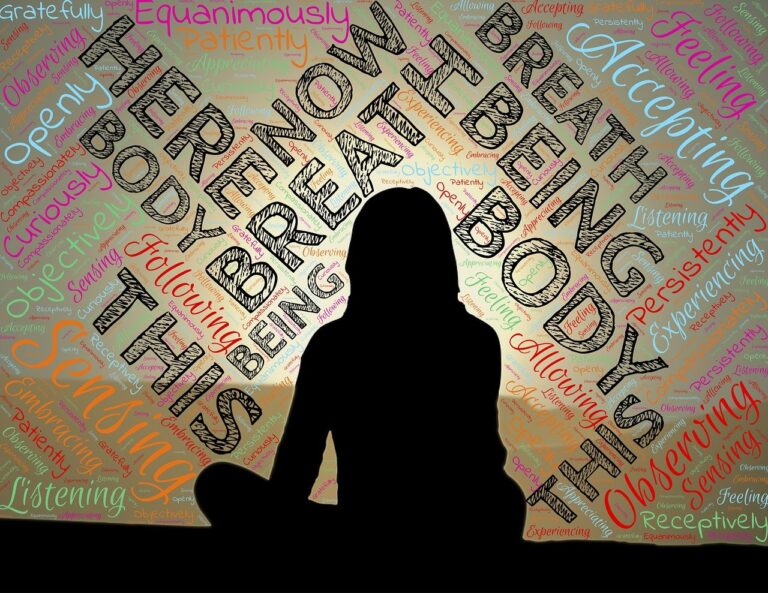The Origins of Meditation: A Historical Exploration
Meditation, an ancient practice transcending cultural and religious boundaries, holds a rich tapestry of historical origins. As we delve into the roots of meditation, we uncover a fascinating journey that spans millennia and traverses diverse civilizations. This exploration seeks to unravel the historical tapestry of meditation, shedding light on its diverse manifestations and profound impact on human consciousness.
The history of meditation is a labyrinth of cultural practices, spiritual insights, and philosophical contemplations. In this quest for understanding, we will navigate through the annals of time, exploring the earliest traces of meditative practices and the evolution of this transformative discipline.
Our journey begins by examining the ancient civilizations where meditation emerged as a sacred art. From the Vedic traditions in ancient India to the contemplative practices of early Taoism in China, we will unravel the foundational threads that wove the fabric of meditation. The cultural nuances and philosophical underpinnings of these traditions will be dissected to illuminate the diverse motivations behind the development of meditation.
Furthermore, we will investigate the spread of meditative practices across the globe, delving into the contributions of influential figures and how meditation adapted to the varying landscapes of different societies. Whether it be the mindfulness teachings of Buddhism, the Christian contemplative traditions, or the Sufi mysticism in Islam, each tradition has added a unique brushstroke to the canvas of meditation’s history.
As we embark on this historical journey, it is essential to acknowledge the impact of meditation on shaping human spirituality and well-being.
Beyond its religious and philosophical roots, meditation has evolved into a global phenomenon, finding its place in contemporary secular contexts, scientific research, and holistic wellness practices.
In unraveling the origins of meditation, we hope to trace its historical trajectory and gain insights into its enduring significance in our modern world. This exploration is a testament to the enduring power of a practice that has stood the test of time, offering a timeless space for self-discovery, inner peace, and a deeper connection to the human experience.
Ancient beginnings: Tracing the origins of Meditation
Meditation, a profound and transformative practice, boasts ancient beginnings that intertwine with the very fabric of human history. Delving into the roots of meditation unveils a captivating journey through the epochs, revealing how this age-old discipline has transcended cultural and temporal boundaries. In this exploration, we aim to unravel the intricate tapestry of meditation’s roots, examining its emergence, evolution, and profound impact on the human experience.
The history of meditation is an odyssey that unfolds across diverse civilizations and spiritual traditions. From the ancient contemplative practices of Hinduism and Buddhism to the mindfulness exercises rooted in early Daoism, the earliest traces of meditation beckon us to discern the cultural and philosophical contexts that birthed this transformative art.
Our expedition begins by peering into the practices of ancient societies, where meditation took shape as a sacred and mystical endeavor. We will scrutinize the Vedas of ancient India, where the earliest documented meditation techniques emerged, and explore the profound impact of meditation on the spiritual fabric of cultures like ancient China and Greece.
As we traverse through time, our investigation will spotlight the contributions of key historical figures who played pivotal roles in shaping the landscape of meditation. From the Buddha’s enlightenment under the Bodhi tree to the contemplative practices of Christian mystics, each epoch bears witness to the evolution and diversification of meditation.
Moreover, we will examine the dissemination of meditative practices across continents, uncovering how various cultures adopted and adapted these transformative techniques. Whether it be the Zen meditation of Japan, the Sufi mysticism in the Islamic world, or the contemplative traditions within Judaism, each cultural context infused meditation with its unique essence.
In our quest to trace the ancient beginnings of meditation, we acknowledge its enduring relevance in contemporary times. Beyond its religious and cultural roots, meditation has found a place in secular contexts, scientific research, and mental and physical well-being.
This exploration aims to illuminate the historical origins of meditation and recognize its enduring impact on the human journey. In tracing the ancient roots of this practice, we uncover a timeless legacy that continues to offer solace, self-discovery, and a profound connection to the fundamental aspects of our shared existence.
Meditation in ancient cultures
Embarking on a journey through the annals of history, we explore the rich tapestry of meditation in ancient cultures, revealing a profound commitment to inner exploration and heightened consciousness.
1. Vedic Roots in Ancient India
The Rigveda and early Vedic traditions provide insight into the contemplative practices of ancient Indian sages, shaping meditation as a transformative discipline within Hinduism and Buddhism.
2. Daoist Perspectives in Ancient China
Influenced by Daoist philosophy, ancient Chinese civilizations embraced meditation to harmonize the mind, body, and spirit. Early Daoist texts, such as the Dao De Jing, illuminate the pursuit of balance and tranquility.
3. Philosophical Contemplation in Ancient Greece
Philosophers like Pythagoras and Plato incorporated contemplative practices reminiscent of meditation into their teachings, recognizing the importance of introspection and inner wisdom in a well-rounded life.
4. Spiritual Significance in Ancient Egypt
In ancient Egypt, meditation held a spiritual significance woven into religious practices. Hieroglyphs and artifacts reveal the Egyptians’ engagement in meditative postures, emphasizing their role in connecting with the divine and navigating the afterlife.
5. Universality Across Boundaries
As we delve into these ancient civilizations, we observe similarities and differences in meditative approaches, underscoring the universal human quest for inner peace, self-discovery, and spiritual enlightenment.
By examining these specific cultural contexts, we aim to gain a comprehensive understanding of the historical and cultural foundations that have shaped meditation into the diverse and transformative practice it is today.
The birth of meditation in Asia: East meets West
The emergence of meditation as a transformative practice finds its roots in the ancient cultures of Asia, where profound philosophies and spiritual traditions shaped the essence of contemplative introspection. As we embark on a journey through the birth of meditation in Asia, we witness the convergence of Eastern wisdom and Western curiosity, unveiling a story of cross-cultural exchange that continues to influence the global landscape of meditation practices.
1. Foundations in Eastern Philosophy
Delving into the cradle of Eastern philosophy, we explore the early formulations of meditation within Hinduism, Buddhism, and Daoism. From the ancient Vedic scriptures to the mindfulness teachings of the Buddha and the harmonizing practices of Daoist sages, we trace the foundational principles that laid the groundwork for meditation’s evolution.
2. Spread of Meditation Across Asia
The diffusion of meditative practices transcended geographical boundaries, spreading across Asia and adapting to diverse cultural contexts. From the Zen meditation of Japan to the Tibetan Buddhist practices, we uncover how meditation evolved as it encountered various civilizations and spiritual traditions.
3. Interaction with Western Thought
The intersection of Eastern and Western philosophies marked a pivotal moment in the evolution of meditation. Influential figures such as the Transcendentalists in the 19th century and the exploration of Eastern spiritual practices by Western intellectuals brought meditation into the Western consciousness, sparking an interest that continues to grow today.
4. Modern Synthesis of Meditation
The 20th and 21st centuries witnessed a fusion of Eastern and Western approaches to meditation. Mindfulness, derived from Buddhist traditions, found resonance in Western psychology and therapeutic practices, leading to secular meditation techniques that emphasize present-moment awareness and stress reduction.
5. Impact on Global Wellness
The convergence of East and West in meditation has contributed to a global wellness movement. From yoga studios in New York to mindfulness retreats in California, integrating Eastern meditative practices into Western lifestyles has reshaped how individuals approach mental health, self-discovery, and overall well-being.
As we navigate the birth of meditation in Asia, the interplay between Eastern and Western influences emerges as a dynamic force that continues to shape the diverse landscape of meditation practices worldwide. This exploration is a testament to the enduring legacy of a practice that transcends cultural boundaries, fostering a global understanding of the profound benefits of mindful introspection.
Meditation in religious and spiritual traditions
Meditation, as a practice of deep contemplation and self-reflection, has woven its way through the fabric of various religious and spiritual traditions, enriching the spiritual journeys of countless seekers. This exploration delves into how meditation has been embraced, adapted, and integrated into the sacred landscapes of different religious and spiritual paths.
1. Vedic and Hindu Meditation
In the ancient Vedic traditions and Hinduism, meditation holds a central place. Practices like Dhyana and Raja Yoga aim to cultivate inner peace, self-realization, and union with the divine. The Bhagavad Gita, a sacred Hindu text, expounds on the significance of meditation in attaining spiritual wisdom and transcending life cycles.
2. Buddhist Mindfulness and Vipassana
With its profound emphasis on mindfulness and awareness, Buddhism has given rise to various meditation techniques. Mindfulness meditation, rooted in the teachings of the Buddha, and Vipassana meditation, focusing on insight into the nature of reality, are integral practices for Buddhists seeking enlightenment and liberation from suffering.
3. Christian Contemplation
Within Christianity, contemplative practices such as Centering Prayer and Christian Meditation offer avenues for communion with the divine. Monastic traditions, including those of St. Teresa of Avila and St. John of the Cross, emphasize silent prayer and inner stillness as pathways to encountering the sacred.
4. Islamic Sufi Mysticism
In Islamic traditions, Sufi mystics engage in various forms of meditation, known as Dhikr, to achieve a heightened spiritual awareness and connection with Allah. Sufi orders incorporate chanting, rhythmic movements, and breath control to facilitate inner transformation.
5. Jewish Kabbalistic Meditation
Kabbalistic traditions explore meditative practices within Jewish mysticism to understand the divine mysteries. Techniques such as Hitbodedut (solitary contemplation) and Merkavah mysticism delve into the inner dimensions of Jewish spirituality.
6. Taoist and Confucian Meditation
The ancient Chinese traditions of Taoism and Confucianism incorporate meditation to cultivate harmony, balance, and moral virtue. Taoist practices, including Qigong and Daoist meditation, align with the Taoist principle of living according to the natural order.
7. Native American and Indigenous Traditions
Indigenous cultures worldwide have unique meditation forms deeply intertwined with nature and the spiritual realms. Vision quests, ceremonial dances, and communal rituals serve as meditative practices fostering a connection with the earth, spirits, and the collective consciousness.
In exploring meditation across these religious and spiritual traditions, it becomes evident that, despite diverse cultural expressions, the essence of seeking inner peace, spiritual awakening, and communion with the divine remains a universal thread weaving through the tapestry of human spirituality.
Meditation in the modern era: From ancient wisdom to scientific research
As we navigate the complexities of the modern era, the ancient meditation practice has undergone a remarkable transformation. What was once rooted in the wisdom of ancient traditions has found itself at the intersection of spirituality and scientific inquiry. This exploration delves into the evolution of meditation in the contemporary context, tracing its journey from timeless wisdom to a subject of rigorous scientific investigation.
1. Revival of Ancient Practices
In recent decades, there has been a resurgence of interest in ancient meditation practices, particularly those rooted in Eastern traditions. Yoga and mindfulness, derived from Buddhist teachings, have gained widespread popularity as individuals seek avenues for stress reduction, mental well-being, and self-discovery.
2. Mindfulness-Based Interventions
Integrating mindfulness into mainstream psychology and therapeutic approaches has marked a significant shift. Mindfulness-Based Stress Reduction (MBSR) and Mindfulness-Based Cognitive Therapy (MBCT) are examples of structured programs that utilize meditation techniques to alleviate various mental health conditions, emphasizing present-moment awareness.
3. Neuroscientific Exploration
Advances in neuroscientific research have provided valuable insights into the effects of meditation on the brain. Functional Magnetic Resonance Imaging (fMRI) and Electroencephalogram (EEG) studies reveal changes in brain activity associated with meditation, shedding light on the neural mechanisms underpinning its cognitive and emotional benefits.
4. Secularization of Meditation
Meditation has transcended its religious and cultural origins, evolving into a secular practice accessible to individuals of diverse backgrounds. Secular mindfulness programs in schools, workplaces, and healthcare settings underscore the adaptability of meditation as a tool for enhancing focus, resilience, and overall mental well-being.
5. Corporate Mindfulness Programs:**
In the corporate realm, mindfulness and meditation programs have gained traction as tools for enhancing employee well-being and productivity. Companies increasingly recognize the value of promoting a mindful workplace culture to reduce stress, improve focus, and foster employee creativity.
6. Integration into Healthcare
Meditation has become integral to integrative medicine, with healthcare professionals incorporating mindfulness and meditation techniques into patient care. From reducing symptoms of anxiety and depression to managing chronic pain, meditation is recognized for its holistic contributions to overall health.
7. Global Wellness Movement
The modern era has witnessed the global proliferation of wellness practices, with meditation at its core. Retreats, apps, and online platforms offer accessible resources for individuals seeking to integrate meditation into their daily lives, contributing to a broader movement toward holistic well-being.
In the modern era, the trajectory of meditation has transitioned from ancient wisdom to evidence-based practices, blending the spiritual and the scientific. As individuals, institutions, and societies increasingly recognize the profound impact of meditation on mental, emotional, and physical well-being, its transformative influence continues to shape the contours of contemporary living.
The global impact of meditation: Its integration into mainstream society
Meditation, once confined to the realms of ancient traditions and spiritual practices, has transcended cultural boundaries to become a global phenomenon. In the contemporary era, the impact of meditation extends far beyond its historical roots, as it seamlessly integrates into mainstream society. This exploration delves into the transformative influence of meditation on a global scale, examining its widespread adoption and the profound changes it has brought to various facets of modern life.
1. Cultural Diversity and Adoption
Meditation’s journey from ancient cultures to the global stage is characterized by its adaptability to diverse cultural contexts. From the bustling streets of urban centers to the serene landscapes of remote communities, meditation has resonated with people worldwide, fostering a universal appreciation for its potential to enhance well-being.
2. Mindfulness in Education
Integrating mindfulness practices into educational systems represents a significant aspect of meditation’s global impact. Schools and universities worldwide have embraced mindfulness programs, recognizing their potential to improve students’ focus, emotional regulation, and overall mental health.
3. Workplace Wellness Programs
Meditation has become a cornerstone of workplace wellness initiatives in the corporate sphere. Companies, acknowledging the link between employee well-being and productivity, have introduced meditation programs to reduce stress, enhance concentration, and promote a positive work culture.
4. Healthcare and Integrative Medicine
Meditation’s integration into mainstream healthcare reflects a paradigm shift in the approach to holistic well-being. Medical professionals increasingly recommend meditation as part of integrative medicine, recognizing its potential to complement traditional treatments and contribute to overall patient health.
5. Technology and Meditation Apps
The digital age has facilitated the global accessibility of meditation through technology. Meditation apps, offering guided sessions and mindfulness exercises, have democratized access to these practices, allowing individuals from all walks of life to incorporate meditation into their daily routines.
6. Celebrities and Influencers
The endorsement of meditation by celebrities and social media influencers has propelled its popularity on a global scale. Public figures sharing their personal experiences with meditation have contributed to its mainstream acceptance, inspiring millions to explore the practice for themselves.
7. Global Wellness Tourism
The rise of wellness tourism reflects the global demand for meditation and holistic practices. Retreats and wellness centers worldwide cater to individuals seeking immersive experiences to rejuvenate minds, bodies, and spirits, showcasing the widespread influence of meditation on the travel and hospitality industry.
8. Scientific Research and Validation
The surge in scientific research validating the benefits of meditation has played a pivotal role in its integration into mainstream society. Peer-reviewed studies documenting its positive impact on mental health, stress reduction, and cognitive function have garnered widespread attention, further solidifying meditation’s place in contemporary well-being practices.
As meditation continues to weave its way into the fabric of modern life, its global impact reflects a collective recognition of its potential to enhance the human experience. From classrooms to boardrooms and healthcare facilities to digital platforms, the integration of meditation into mainstream society underscores its capacity to foster a more mindful, balanced, and interconnected world.
Concluding thoughts: Reflections on the rich history of meditation
In concluding our exploration of meditation’s history, the enduring legacy of this ancient practice becomes evident. Meditation has shaped cultures, philosophies, and individual well-being from its origins in ancient civilizations to its integration into modern life. The threads of its history, woven through diverse traditions, have created a tapestry that transcends time and cultural boundaries.
Today, as meditation finds a place in classrooms, workplaces, and digital spaces globally, its universal appeal reflects a shared human quest for inner peace and mindfulness. This rich history invites ongoing exploration and appreciation for the transformative power that meditation continues to bring to individuals and societies alike.









